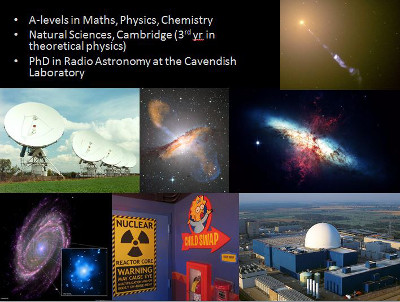
I have developed and delivered talks about my areas of interest in science, maths and engineering, some to schools, others to amateur and professional societies.
I tend to frame most of my talks as a series of visually exciting images, and adjust my spoken words to the level of the audience and sometimes the brief provided by a teacher for particular emphasis. I like the challenge of producing new talks, so I am always willing to hear suggestions for new topics, or modifications of existing themes. (I have degrees in physics, astronomy, computing and geo-science plus a long career in engineering, so I can cover a fair amount of ground, especially emphasising cross-disciplinary connections.)
I can deliver most of these talks via Zoom.
Where is Everybody?
|
The title refers to a question posed by the great physicist, Enrico Fermi. We know that there are hundreds of billions of stars in our Milky Way galaxy, and it was reasonable to assume that many of these would have planetary systems. On the assumption that the original of life was a natural chemical process that would also occur on at least some of these planets (by analogy with the Solar System perhaps one per star) and that evolution would eventually lead through increasing complexity to intelligent life forms, there ought to be a multitude of advanced civilisations able to communicate with us (and some perhaps willing to do so). Given the age of the galaxy and many of its stars, there would have been more than adequate time for advanced robotic probes to explore much of the Milky Way. So why have we not detected them? His point, of course, was that a simple observation indicates that at least one of our assumptions must be wrong. This talk is about the advances that have taken place since Fermi's originally talk, including discoveries of thousands of "exoplanets", and increased knowledge about early life on Earth. So, has the picture really changed? Are we alone in the Milky Way? |
 |
Artful Computing
|
|
|
|
I delivered this lecture to the Cheltenham branch of the British Computer Society on connections between art and computing. It was repeated (with developments) on 11 December 2019 at the Cirencester Science and Technology Society. I make several points (which cover a selection of the material on this site):
Along the way I outline how the technology can be used, where to find more information, and display some of my own artwork. As with all my other lectures, I believe that can adjust the level of the verbal commentary to suite the sophistication of the audience. (Who knows: web-aware secondary school students may well have a better appreciation of visual aesthetics than a bunch of computer engineers.) |
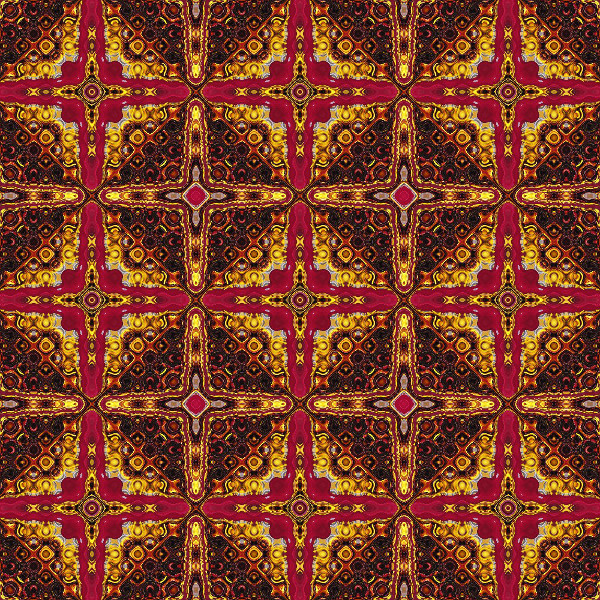 |
The Herschels in Bath: Music, Science and Social Climbing
|
In February 1781 William Herschel was a successful musician on the Bath social scene: he was the director of public concerts, teacher, composer of many musical works and earning a respectable £400 per annum. By the end of March 1781 he was famous all over Europe as the discoverer of a new planet---the first since antiquity. In 1782 the Royal Society awarded him the Copley Medal and elected him as a Fellow, while the King appointed him as `Court Astronomer' on a Royal Pension. In the following years that he devoted exclusively to astronomy he continued doing important work until his death in 1822, and perhaps most importantly was the first to pose some of the fundamental questions that have dominated the astronomical research agenda until the present day. Caroline Herschel was born twelve years after William. Her face had been disfigured by small pox and her early growth stunted by typhus so she was bluntly told that she was unlikely to marry and her fate was to stay at home and be the domestic drudge. Unlike her siblings she was even prevented by her mother from learning music or needlework: there was to be no escape route. By 1787, however, she was receiving her own Royal Pension and being treated with the greatest respect by the Astronomer Royal—the first women ever to hold a UK government appointment. As well as acting as her brother's astronomical assistant she is credited with a number of discoveries, including five comets, and recognised with major honours from academic bodies as the World’s first professional female astronomer. Then there is the “forgotten” Herschel, Alexander, who spent most of his life in Bath as a professional musician. Although he never practiced astronomy, Alexander was a mechanical genius who help Herschel to “engineer” his telescopes. When Bath was “out of season” he spend his holidays in William’s workshop, where he made lenses, turned brass and devised machines to help with mirror grinding. Whenever William required particularly fine or delicate mechanical work he said “Leave it till Alexander comes.” How could this happen and why did it happen, probably not by accident, in Bath? I developed this talks for a local history society, whose interest had been stimulated by the proposed celebration of astronomy in Bath in 2020 - but then COVID happened so I delivered it via Zoom. |
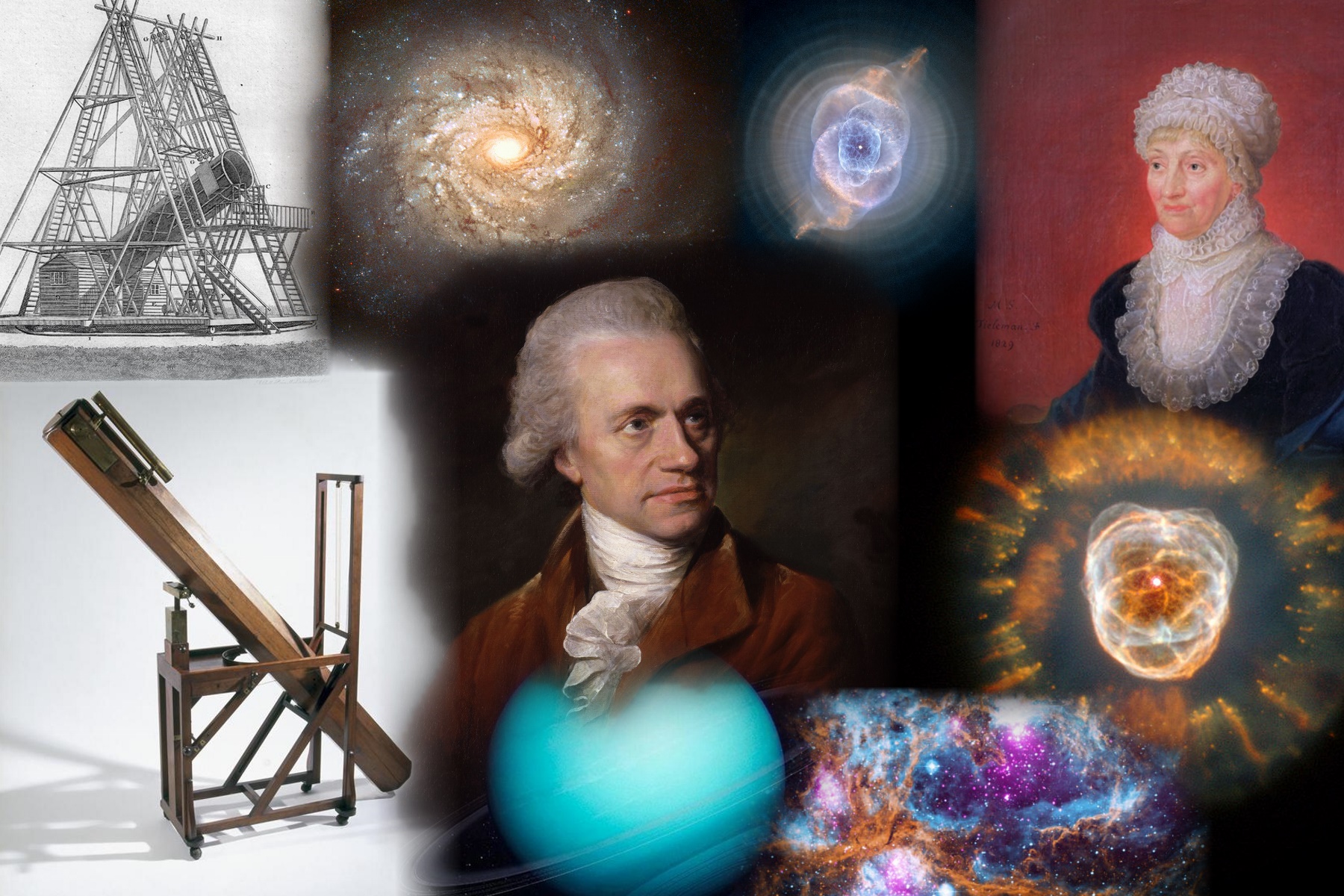 |
The Hidden History of Women in Astronomy
|
Women have made many significant contributions to astronomy, but their contributions are often erased from history, or even attributed to men. It is, however, not always a story of heroines and villains and some of the developing myths can be oversimplified. Why did some apparently deliberately evade taking any credit for joint work with their menfolk? Why did others appear on observatory books as "items of equipment"? How did one UK female astronomer get access to the World's biggest telescope by posing as her husband's assistant, when he was hers? (And why did the observatory toilet figure so prominently in the story?) This talk was developed at the invitation of the Cotswold Astronomical Society for initial delivery on 9 November 2019. Background notes for this talk are here. |
 |
The Life and Death of Stars
|
What do we know about the stars? How do we know about them? How far? How big? How luminous? We look at how stars are born, what happens as they age, and the various spectacular ways that they can die - including getting sucked into super-massive black holes. This talk, which has been delivered successfully from Year 7 through to Year 11, is mainly a sequence of spectacular images from Hubble space telescope. I change the associated commentary to suit the sophistication of the audience. (I originally developed this talk at the request of the local school who wished to have an entertaining overview of the "stars" material in the GCSE syllabus.) |
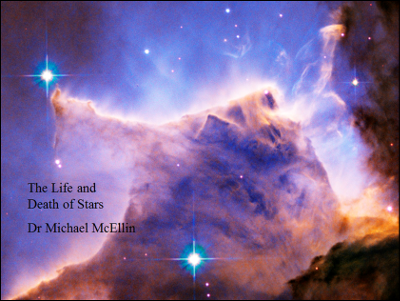 |
Radio Telescopes: How they Work and What They Can Do
|
Radio astronomy created a fundamental revolution in astronomical knowledge in the 20th Century, leading to the discovery of quasars, pulsars and giant strides in cosmology via studies of the microwave background. It seems likely that the next generation of radio telescopes will create a further revolution in cosmological knowledge. In spite of this, there are not many people outside the professional community of radio astronomers who really understand how such telescopes actually work, and what they can tell us about the workings of astrophysical objects. I go into the technology in some depth, so this is a talk for astronomy enthusiasts or for science specialists in the upper school years. This talk was developed at the invitation of the Cotswold Astronomical Society for delivery in February 2018. I have recently repeated it for the Cirencester Science and Technology Society via Zoom. (An early trial version of this talk was recorded here.) Notes for the presentation are here . |
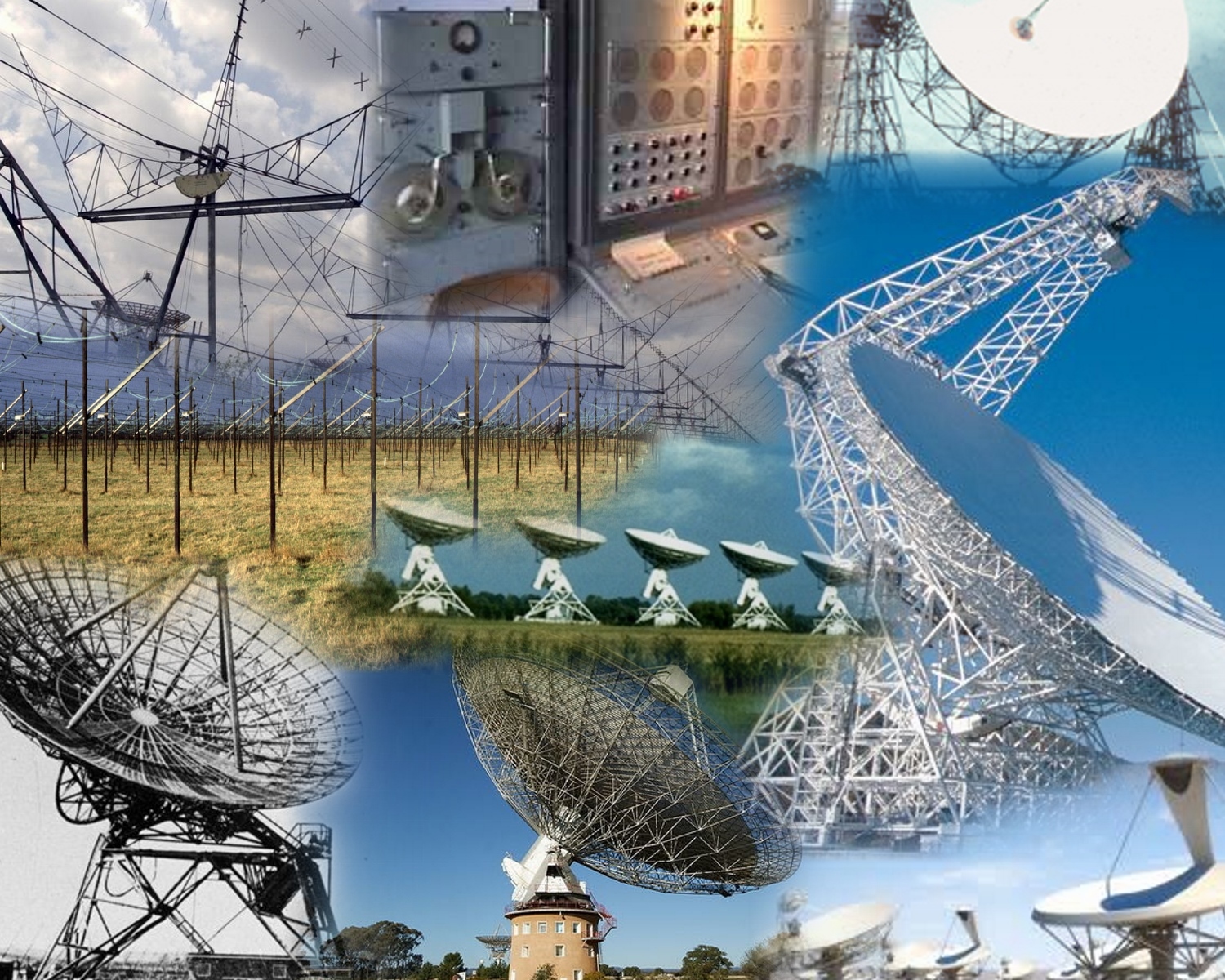 |
So What do Astronomers Do During the Day?
|
A careers talk based on my own progression from physics graduate to nuclear engineer, via astronomy. This talk is aimed at Yr 11 - Yr 13 and any students who are seriously thinking about which way to go with A-levels and degree subjects. I discuss my own path through a physics degree and from astronomy PhD student to nuclear engineer. We do actually talk about what astronomers do, and how you get to be an astronomer. However, the real point is that advanced study in an apparently esoteric subject such as astronomy actually prepares students for many careers in which the skills that they have developed (such as instruments building, data analysis, computing and thinking big) are in very high demand. |
 |
Searching for The Origin of Life
|
How did life begin? What are the possibilities for life on other planets and satellites in our Solar System? Through a discussion of what we know (and don't know!) about the origin of life on Earth we explore scientific connections between astronomy, biology and geology. Real science does not have subject boundaries! Real science also has lots of "Don't knows!" and as many questions as answers. |
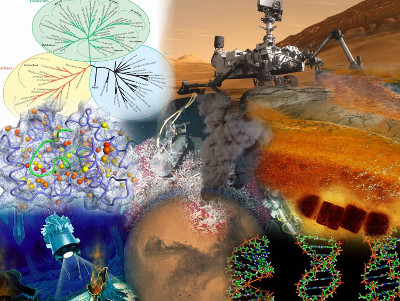 |
Defending Planet Earth
|
The explosion of a large meteoroid high over the Russian city of Chelyabinsk in 2013, with the force of a nuclear explosion and causing considerable damage to buildings and injuries to about 1000 people, focused attention on the risk from impacts of extraterrestrial objects, which are probably larger than most people would like to think. What are the risks and how can we defend ourselves against catastrophic events in the future? Are governments doing anything to protect populations? Who has the World's coolest job title? ("Planetary Defense Officer") What does he actually do? I discuss the nature of near-Earth objects and the likelihood that we will get hit by one that would cause widespread damage. We also look at a variety of feasible methods for deflecting incoming impactors or for mitigating damage if they cannot be dodged. From a wider perspective, the talk is about how we handle risks, and how we compare rare but catastrophic events with more frequent but less damaging events. How do you decide how much it is worth spending to avoid a highly damaging impact that might not occur for a thousand years? This would be suitable for older students who would benefit from seeing how we apply scientific knowledge to answer questions raised by politicians and the wider public - and where there are no easy choices. It would also interest students with an interest in planetary science and aerospace engineering. I have delivered this talk to both the Cotswold Astronomical Society and Cirencester Science and Technology Society. |
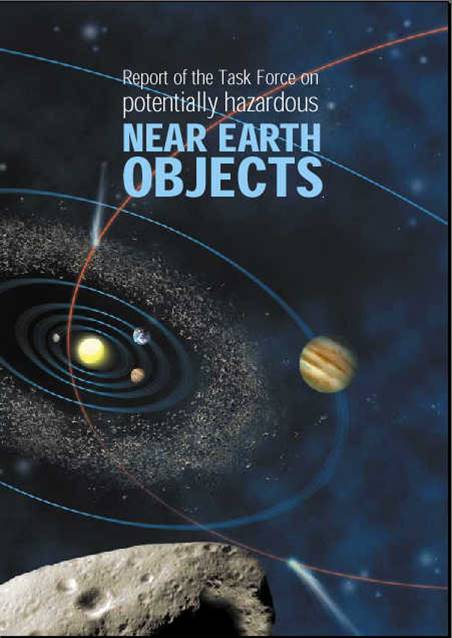 |
Climate Change: What does it mean for You!
|
A discussion of climate change science, and what it means for all of us. In particular, I look at what we know pretty much for certain, but also predictions that are less certain, but where maybe we would be wise to act on worse-case possibilities. This talk was originally developed to brief professional colleagues at my workplace about the latest results on climate change and how we need to respond. (As nuclear engineers working in the field of low-carbon energy generation this was a matter of much relevance.) It should be suitable for older students (say year 11 upwards) who have some interest in how science is use to tackle important contemporary issues. |
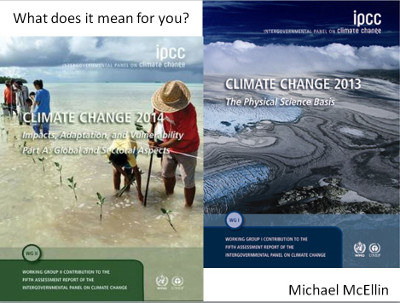 |
Energy Futures
|
A discussion of possible energy futures if we decide (as we must) to reduce our fossil fuel consumption very radically. This was developed to support a year 9 science day, but the level of commentary can be adjusted up or down to suit the audience. |
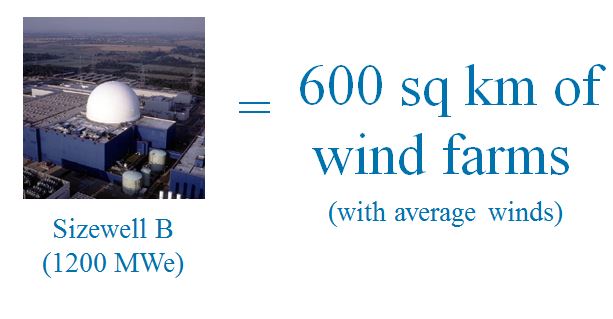 |
Long Term Energy Futures
|
How can the UK solve its long term energy supply problems? Here we explore a real blue-sky option: building giant solar collectors in space and beaming energy back down to Earth. This is more feasible than many people might think, and many of the elements I bring together are under serious study by organisations like NASA. However, it all relies on the development of advanced super-strong materials such as graphene, semi-autonomous robots capable of working in space for long periods, and mining raw material from asteroids (which I propose we move around using giant solar sails). The talk covers a lot of gee-whiz space-engineering, but along the way sneaks in quite a bit of real science relating to the nature of energy and its central role in physics and engineering. The talk was developed to be part of an "Energy" day for Yr 8s at a boys' grammar school. I took the brief of getting them really excited about things that might just happen in their lifetime. It went down very well! |
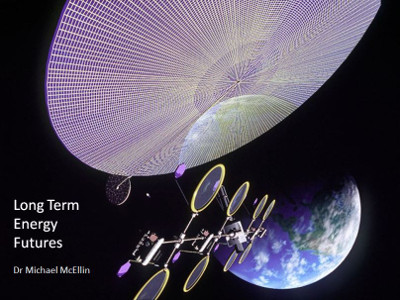 |
Maths in My Job
|
A careers talk on the many uses of mathematics in science and engineering that I have used on a number of school visits. I explain how mathematical modelling is now central to many disciplines from ecology to aeronautical engineering and that graduates capable of devising and operating such models are in high demand. Suitable for students having serious thoughts about subject choices and future career directions. |
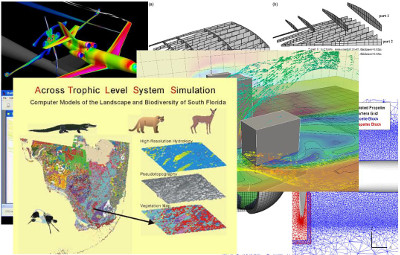 |
